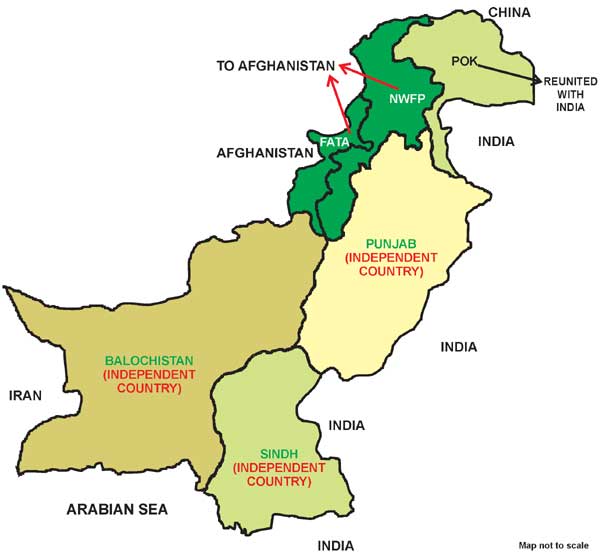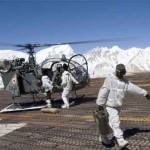IDR Blog
Election Results Further Divide Pakistan, Expose Deep Rot and Fissures
Pakistan was already in a serious political, economic and social mess. The elections just held have deepened that mess. The functioning of all Pakistani institutions has been badly exposed and their credibility eroded further.
Imran Khan defied the Pakistani military and has paid a price for that. The judiciary has pliantly played the game of the Pakistani military by sentencing Imran Khan to long periods of imprisonment for provoking violence against the army, leaking state secrets and profiting from the sale of gifts he received as Prime Minister from foreign dignitaries. His wife too has been given a prison sentence for an un-Islamic marriage with Imran Khan.
The Pakistani military is seen, and sees itself, as the saviour of last resort of Pakistan’s survival as an ideological nation. The army, as known, has always exercised real power in Pakistan directly or indirectly. Imran Khan himself was put in power by the army as an alternative to the traditional political parties. Having fallen afoul of the army because he wanted to exercise his prime ministerial prerogative in military appointments, he was removed from power. The army then manoeuvred for Nawaz Sharif to return from London and replace Imran Khan. The judiciary cooperated by lifting the life-long election ban on Nawaz Sharif because of his criminal conviction for dishonest practices because, it ruled, that life bans “abridge the fundamental right of citizens to contest elections and vote for a candidate of their choice”.
The Election Commission of Pakistan decided to bar PTI — Imran Khan’s party — from using its iconic cricket bat symbol to identify party candidates in the election on the grounds of irregularities in its internal party elections. The Pakistan Supreme Court upheld the decision of the Election Commission. Members of Imran Khan’s party were barred from contesting the election under their party’s name and were compelled to run as independents.
It was speculated that while the Pakistani military would manoeuvre to make Nawaz Sharif Prime Minister but will also ensure that no party gets a majority so that a coalition government that emerges is relatively weak and can be better controlled. In the event, the military’s strategy hasn’t worked as expected because despite all the bans and restrictions put on Imran Khan and the PTI, his followers standing as independents have won the largest number of seats, close to 93 or so (out of 101), with PML-N winning 75 seats, the PPP 54 seats, the MQM-P 17 seats and others 12. With the delay in announcing results, the closing down of the internet and telephone networks during the counting, the accusations of rigging seem credible.
A coalition government is in the offing. Nawaz Sharif has made an appeal to all parties to come together to put crisis-ridden Pakistan back on the rails, and negotiations are being conducted with PPP and others. General Asim Munir has backed Nawaz Sharif’s call in stating that “Pakistan’s diverse polity and pluralism will be best represented by a unified government of all democratic forces imbibed with national purpose”. Depending on how hard the bargain is driven by Asif Ali Zardari with regard to the distribution of portfolios, it is not clear if Nawaz Sharif would eventually become the Prime Minister.
In all this, the military as an institution has also taken a hit. The limits of its ability to control the political process have been exposed. It is not the first time though that the military has received public rebuffs, but such is its core control of power and policy in the system that it recovers from setbacks. The fact that challenged openly and persistently by Imran Khan and General Munir’s determination to crush him and the PTI, the former Prime Minister’s youthful supporters have resisted and emerged as the largest group of independents in the election, shows that the military’s role in Pakistani politics is being challenged.
Some believe that this show of resistance to the military’s political manipulation is a good augury for Pakistan’s democracy. But then, Pakistan’s political structure, the role of the armed forces, the domination of Punjab in its polity, the radicalisation of its society, the country’s ideological underpinnings, the limited base of its economy and the difficulties in revitalising it because of vested interests are issues that are deeply linked to the possible evolution of a more democratic Pakistan.
Leaving aside the hurdles to any genuine democracy in Pakistan that its military represents, the political leaders of Pakistan have vied for power in the country without any genuine democratic convictions. Imran Khan’s vision of Pakistan is not that of a modern democracy but of an Islamic welfare state based on moral and ethical principles — a Riyasat-i-Madina — that would transform Pakistan. As for other leaders, those of PML-N and PPP, they have been in and out of power, in and out of jail, tainted by corruption. They have fought elections without seriously committing themselves to plant the roots of a stable democracy in Pakistan. Pakistan sees Turkey as a model to emulate, but Turkey itself has moved towards an Islamic state. So, what lesson is there for Pakistan in this?
With this election, the disarray in Pakistan is likely to become worse. The coalition government that is formed will appear to lack legitimacy. The PTI, as independents, will be a powerful opposition, galvanised by their jailed leader. All this at a time when Pakistan’s economy is in dire straits, relations with Afghanistan are tense because of the activities from its soil by the Pakistan Taliban (TPP) against Pakistan and the forced repatriation of over 400,000 Afghan refugees, the insurgency in Balochistan, and the exchange of military strikes between Pakistan and Iran.
Ties with India are frozen. General Munir has made several antagonistic statements towards India, calling it a threat to regional peace and has sought action by the international community against India on Jammu and Kashmir. The terrorist threat to India from Pakistan remains alive. The likelihood of any forward movement in relations with India is minimal.





